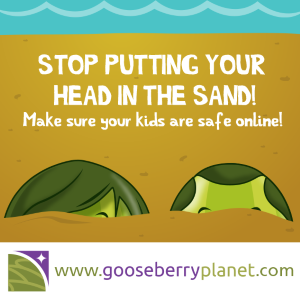I am being ask all the time whose job is it to keep children safe online? Where do the responsibilities begin and end for the educational institution?
There is such a big debate with these questions and the truth is it is all our responsibility to protect children both off and online. To be effective in doing this there must be cohesive approach that involves children, school staff and parents. A school community ethos with all parties working collaboratively together.
 It is no secret that parents expect schools to deal with problems that are created online outside of school. This is now expected and accepted as the way it is but it is not and must not be the only way. It is time for everyone of us to adjust the way in which we view and use the web and adapt to the changes that are happening around us. It is a fact that many parents cannot or will not step forward to help themselves or their children when there is a problem online or adjust their own behaviour to protect themselves from online threats. Many believe that ignoring the problem and pushing the responsibility elsewhere forces our schools to educate our children, parents view online safety as a problem for schools to solve, leaving some parents totally unaccountable and free to remain blissfully unaware of the threats they and their children face online. The truth is our schools need support and guidance about teaching online safety effectively. To improve the health and wellbeing of everyone online we must all accept that it is a collective responsibility and should support our schools in recalibrating roles and responsibilities when it comes to teaching and modelling positive and safe behaviour online.
It is no secret that parents expect schools to deal with problems that are created online outside of school. This is now expected and accepted as the way it is but it is not and must not be the only way. It is time for everyone of us to adjust the way in which we view and use the web and adapt to the changes that are happening around us. It is a fact that many parents cannot or will not step forward to help themselves or their children when there is a problem online or adjust their own behaviour to protect themselves from online threats. Many believe that ignoring the problem and pushing the responsibility elsewhere forces our schools to educate our children, parents view online safety as a problem for schools to solve, leaving some parents totally unaccountable and free to remain blissfully unaware of the threats they and their children face online. The truth is our schools need support and guidance about teaching online safety effectively. To improve the health and wellbeing of everyone online we must all accept that it is a collective responsibility and should support our schools in recalibrating roles and responsibilities when it comes to teaching and modelling positive and safe behaviour online.
Children are sharing and exposing so much personal data and using tools online such as live video streaming with no guidance or effective education. These tools, apps and websites are great for adults, but can make our children targets without supervision or a secure set of skills and the knowledge to use the web independently.

Online gaming and any app that can connect with other people is landing children in hot water. Even those children who we think are street wise and sensible fall victim to grooming, scams, phishing, gambling and other online vulnerabilities. With the average age of a gamer placed at 32 years old, we wonder why children are easy targets. Evidence is suggesting that by blocking their access to the web; this will create an underground instead of an open conversation culture. In short, we (and that is everyone who uses the web) should be teaching our children how to behave positively online and the skills to prevent, identify and respond safely when faced with threats online. The key is effective education for all.
Are parents fully aware and what products and resources could help them?
Parents are aware, but in most cases, are the worse culprits. There are so many websites out there and technologies to help parents and unfortunately a very small percentage go and look. 65% look at their school for help and 41% want more help. You have Internet Matters, Parent Zone which are all great, but again Gooseberry Planet is the only company that using technology to engage with the parent and provides them with real time feedback about how their child is responding to real life online scenarios. Our system emails the parent every time the child plays and the parent can see the response and follow it up with that all important conversation. We offer videos and information on the exact area that their child might need to improve. It all helps with the vital open conversation. We are even going to create a game for the grownups. Why should all the children have all the fun
We also offer Parent Workshops, look at the feedback we are receiving.
Both Emma and myself were very impressed with all aspects of the presentation. The materials used were hard hitting, informative and eye opening. Stella was a fantastic presenter, keeping everybody engaged and relating the content to her own life experiences in a way that made everything she discussed real. It was also clear that Stella was not ‘anti-internet’ for children, instead encouraging parents to have open and frank discussions with their children to support their use of the Internet. The parents were comfortable with Stella and they were happy to ask questions and specific advice. I would highly recommend your parents workshops to anybody serious about keeping their children safe online.
